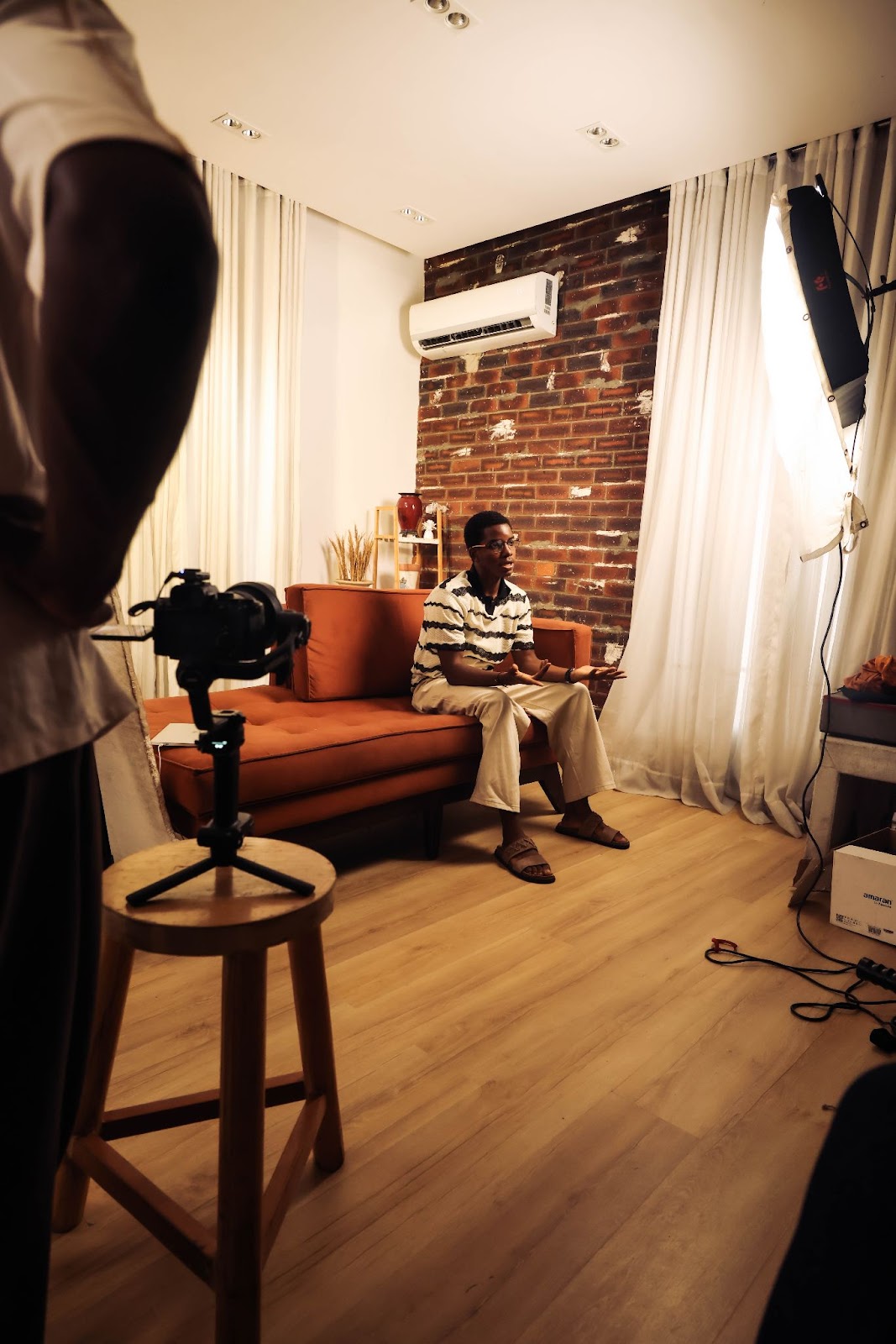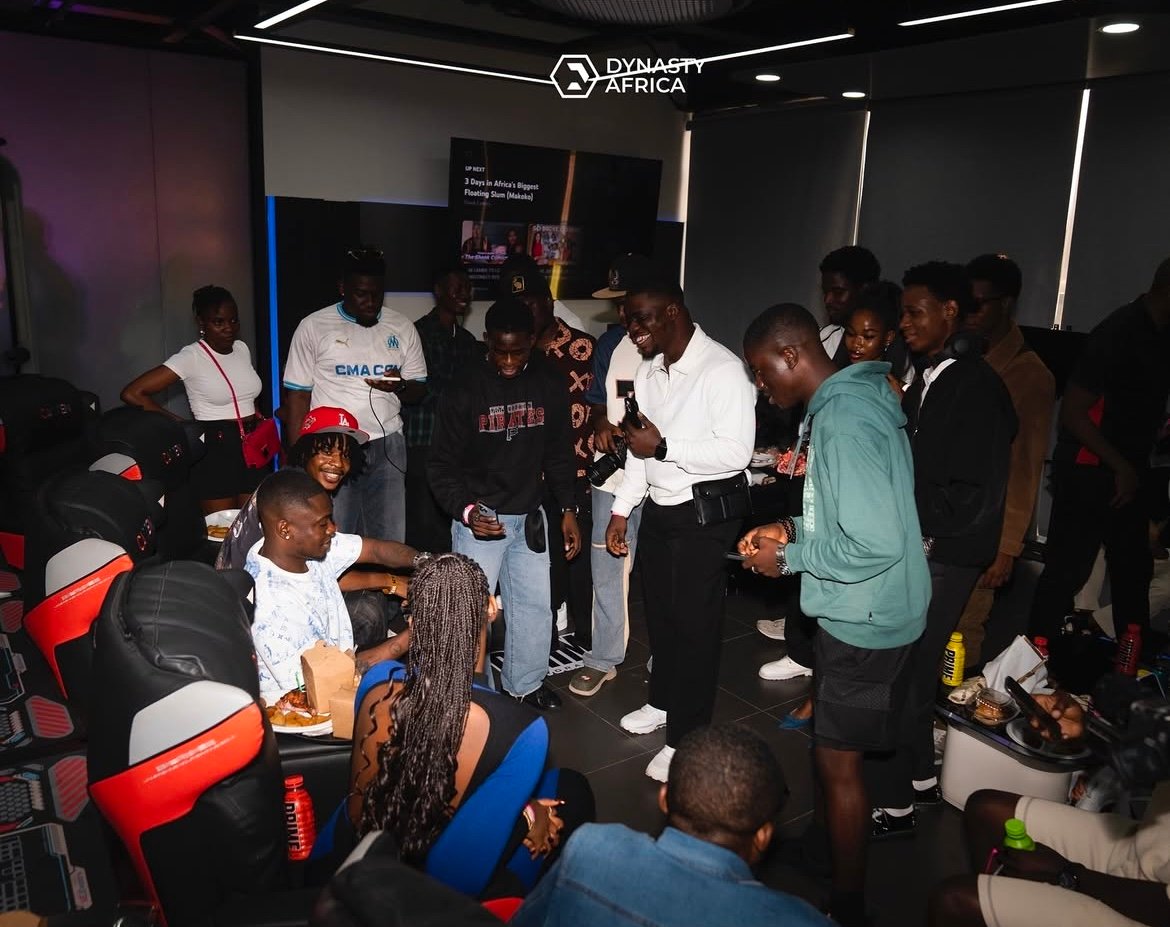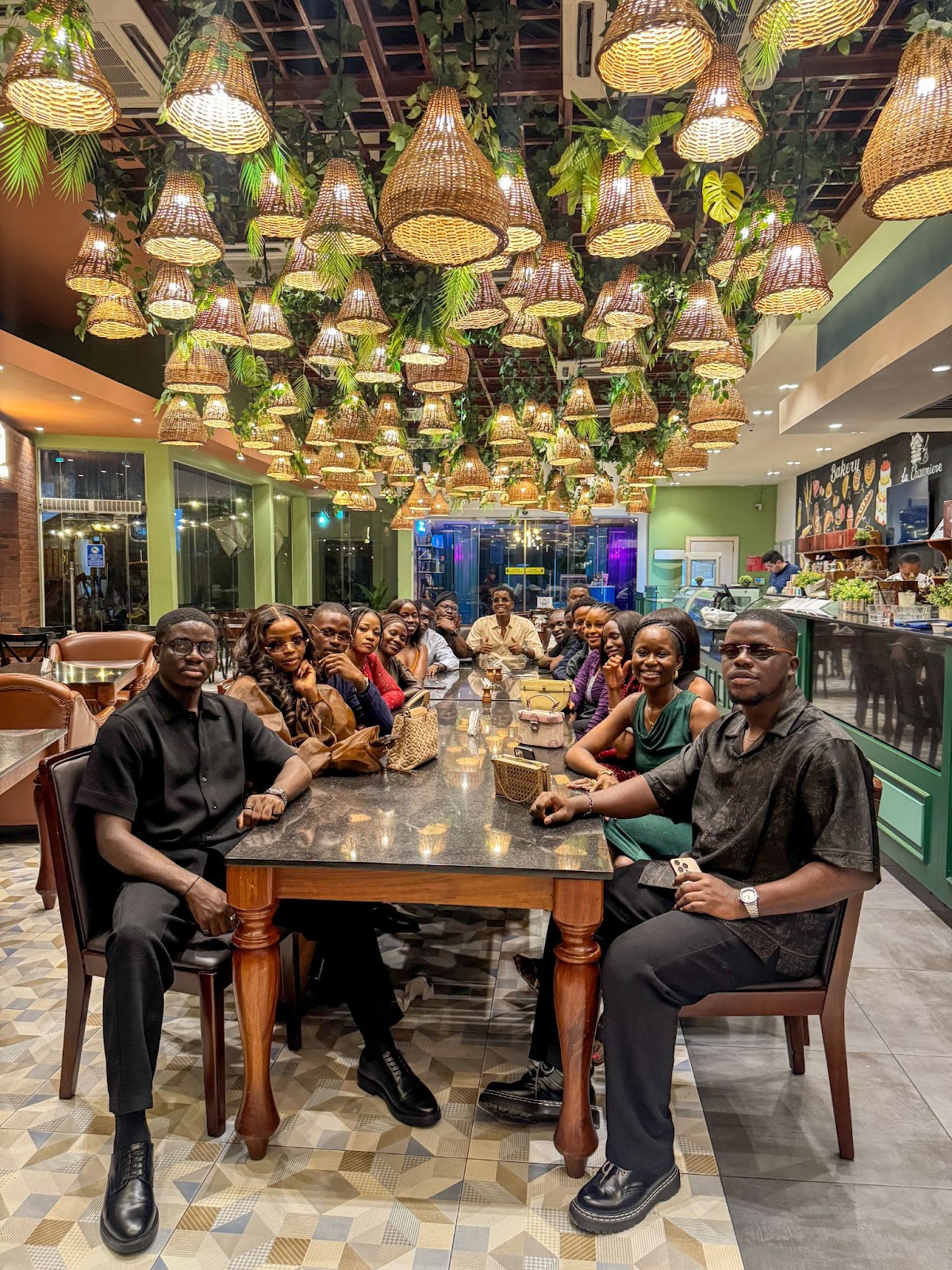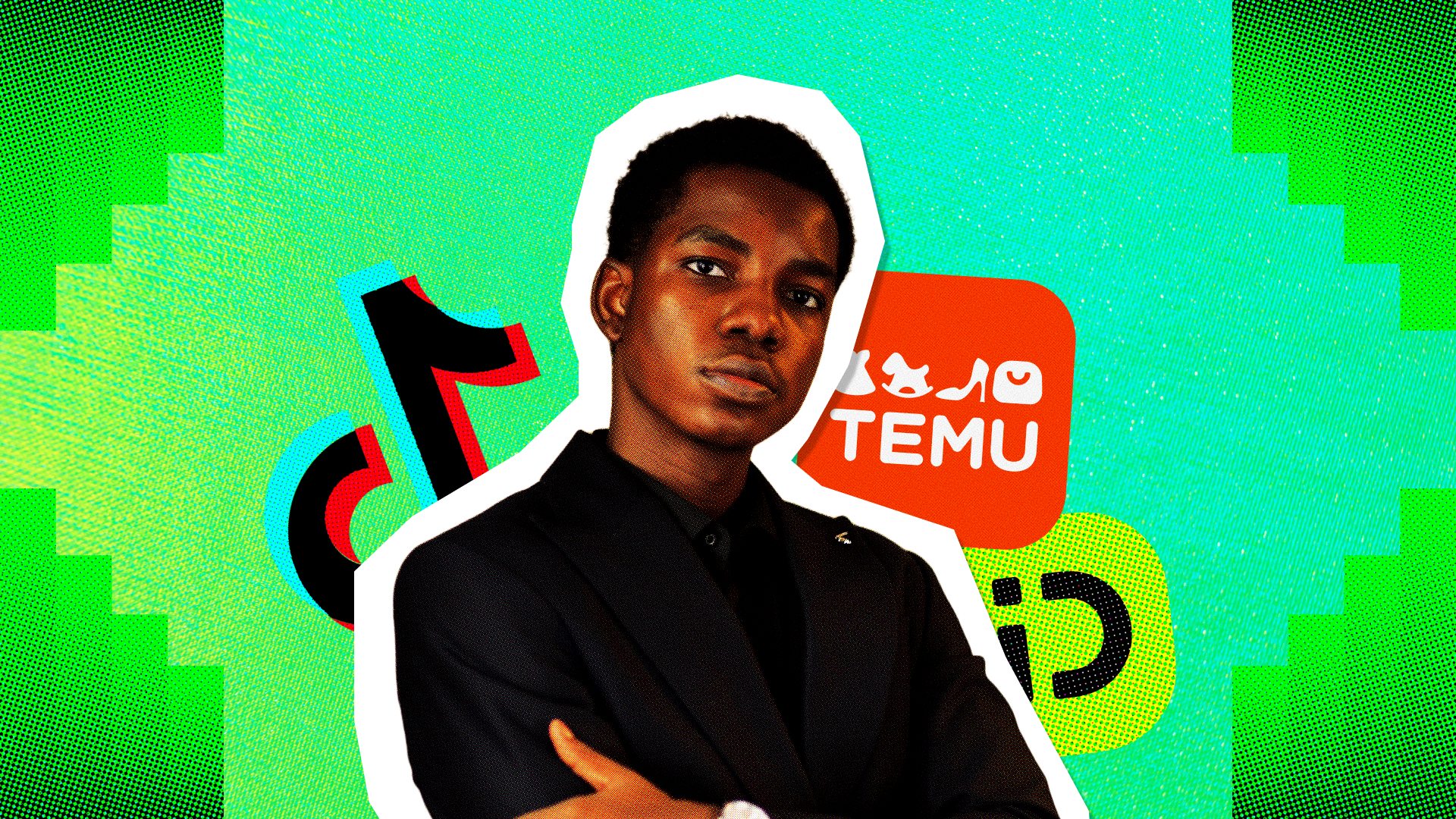It is July 2021. As Nigeria grappled with rising tensions from insecurity to a looming third wave of COVID, Dayo Adedeji—who had already rebuilt his Twitter following twice after suspensions—was scrolling when he saw a post from Adefolaju Amoo, CEO of GridCode. A new navigation app in Nigeria, clearly struggling to explain its product.
He sent a DM, not a pitch deck or proposal. Just an “I think I know how to help people understand your product.” Then he started sharing actual strategies in that first message. Free advice, no strings attached.
The CEO was interested, and that’s how Dynasty Africa landed their first client through a proactive DM.
Four years later, Dynasty Africa has guided nearly 100 brands, including global names like TikTok, inDrive, TapTap Send, Temu, and Mavin Records, through campaigns that moved markets. Thanks in part to a partnership with inDrive that began in 2023, they pushed the global ride-hailing app from fourth place to a major player in Nigeria, with campaigns featuring influencers Dezny and Layi Wasabi that blurred the line between advertising and entertainment.
They also helped Best Data, a budding data plan aggregation startup, pull in over ₦250 million ($162,576) in just three months. Their 2024 inDrive campaign became the most viral of the year, with Dezny’s video having a major cultural impact.
Now they’re rebranding. What started as an influencer marketing agency has evolved into one of Nigeria’s top creative and marketing agencies, and the reasons behind that shift say a lot about where the market is going.
The unique edge to new beginnings
Here’s the thing about getting your Twitter account suspended twice and rebuilding 100,000 followers each time: you learn what moves people. Not what should move them according to marketing textbooks, but what makes them stop scrolling, screenshot, and send to their group chats.
Adedeji, who experienced this, had that gift. The sharp, witty content that made you laugh and think simultaneously. The kind that got the attention of platform moderators but built real influence. So when brands started reaching out, he didn’t shift tone or style. He treated their campaigns like the way he delivered stories with his tweets , because to him, there was no difference.
This was happening around 2021, when like counts started disappearing on Instagram and Twitter, forcing creators to focus on genuine engagement and storytelling over surface-level vanity metrics. Adedeji naturally led that shift, at a time when Twitter didn’t pay Nigerian users, but brand work did.
“I believed marketing should be entertaining,” he says. “Most creators see brand work as just a job. I saw it as making my normal content.”
That perspective would become Dynasty Africa’s foundation and its unfair advantage.
The GridCodes lesson
That first client showed Adedeji that the surest way to win new clients is to lead with value, not the ask. Those early DMs were more about fixing a problem he could already see than pitching. That mindset still shapes how Dynasty Africa works.
More importantly, GridCodes represented something bigger. As Adedeji remarked during Dynasty Africa’s 3rd anniversary: “The challenge of being a pioneer is that there is no blueprint to follow. You become the blueprint.”
In 2021, influencer marketing in Nigeria lacked structure—brands tapped popular faces without a strategy or measurement plan. In Africa, the influencer marketing platform market was valued at about $130 million in 2025 and is expected to double to $260 million by 2031, growing at a 9.9% CAGR. Dynasty Africa’s introduction of systematic creator selection, campaign strategy, and relationship management set the industry tone across the region.

Building the formula early
Best Data proved the model could work. The data aggregate startup ran a one-month Independence Day activation for its data and airtime service. Three months later, the stats spoke for themselves: ₦250 million ($162,530) in revenue, 16,000 new users, and 250,000 transactions. The founder called it “mind-blowing.”
The specifics of how they achieved those numbers aren’t public, but the results established Dynasty Africa’s credibility with both creators and brands. More clients started paying attention.
The inDrive miracle
Dynasty Africa’s breakthrough came with InDrive. Three years ago, the ride-hailing app was fourth place in a three-horse race between Uber, Bolt, and whoever Nigerians were actually using. They had one key differentiator: riders could negotiate fares. In America, that’s a nice-to-have. In Nigeria, that’s basically the national sport.
Dynasty Africa didn’t just advertise this feature. They turned it into a theatre. Viral skits and videos where the negotiation became the entertainment. Street trends that felt like block parties. Content that made choosing InDrive feel less like downloading an app and more like joining a movement that understood you.
The numbers from their first year alone: over 25 million reach nationwide, millions of engagements, and measurable user growth that pushed InDrive to market leadership. But the real breakthrough came in 2024 with the DreamRide Campaign, featuring Dezny in what became the year’s most viral influencer ad, racking up over 10 million reach while selling rides with pure entertainment flair.
inDrive didn’t beat Uber by being cheaper or faster. They beat them by feeling more Nigerian.
There’s trackable virality, and then there’s what happened with that inDrive campaign—when street vendors joked in their slogans, and even churches, according to the team, echoed its lines in their messaging. The moment when marketing becomes culture.
Expanding the cultural translation model
This approach worked across industries. Prime Drink, an influencer-fueled global beverage brand, turned its Africa launch into cultural moments built around Gaming aesthetics and youth identity. Remittance platform TapTap Send tapped into diaspora emotions, combining the practical need to send money home with the deeper feelings tied to family responsibility and success abroad.
For Odumodu Black’s “Eziokwu” album, Dynasty Africa treated the release like a cultural movement rather than a product launch. Activations looked organic, social content felt like natural documentation. The album hit number one because people felt like they discovered it rather than being sold it.
Dynasty Africa’s roster grew to include top Nigerian digital talent: Shank, Hilda Baci, Aproko Doctor, Asherkine, Layi Wasabi, Peller—cultural architects who shape continental conversations. But they weren’t just booking big names and hoping for magic. Every collaboration was strategically designed for impact, not just reach.

The 70% rule for global reach
Here’s Dynasty Africa’s not-so-secret sauce: 70% of their clients are brands trying to penetrate African markets, whether targeting local audiences or diaspora communities in Lagos or London. The challenge remains consistent: making international and local brands feel authentically African.
It’s harder than it sounds. Global brand guidelines designed for Western markets often feel tone-deaf in African contexts. Cultural references that work in New York fall flat in Nairobi.
Dynasty Africa specialises in translation, not just language, but cultural frequency.
When TapTap Send wanted to crack the African market, they didn’t just need influencers. They needed cultural interpreters who understood how African audiences discover, discuss, and adopt new platforms. The campaigns felt organic, not imposed.
This expertise caught global attention. It’s why TikTok chose Dynasty Africa as creative partners for three African markets. Why established brands like GTCO Food and Drink, inDrive, TapTap Send, Temu and Mavin Records began trusting them with cultural translation. And why startups and multinationals both saw them as the bridge between global ambitions and local relevance.
Growing through purpose
Most startup founding stories get sanitised for PR, but Dynasty Africa‘s journey has been anything but tidy. As the team grew from just Adedeji to a fully functional team across borders, the hardest part was managing people.
He describes it as “the hardest thing I’ve ever had to do”
The turning point was hiring for purpose, over job descriptions. While other agencies cycled through talent, Dynasty’s core team stayed steady because everyone understood the mission: make brands feel like they belong in culture, not like they’re interrupting it.
That clarity held them together through four years of fast growth, even as they quietly moved beyond influencer marketing into content, social media, and media production and media buying.
The full-service evolution
By 2024, Dynasty Africa had outgrown their original container. What started as an influencer agency had evolved into something bigger: a full-service Creative and Marketing agency that happened to start with creators.
The rebrand was mostly internal: new systems, strategic partnerships, expanded service categories, including tech . They kept the same blue colour, just made it richer.
“Rebranding was more internal than external,” Dayo says. The visual changes were minimal compared to the operational transformation.
But this evolution was inevitable. Dynasty Africa had proven they could deliver across all marketing channels while maintaining their core advantage: cultural intuition—an edge that’s earned them industry recognition, from Most Viral Campaign of the Year in Nigeria (2024, 2025) to Best Social Media Campaign at the 2025 MarkHack Awards, plus shortlistings for Africa’s Largest Influencer Network and Best Use of Data in Campaign.

The future is “Powerful Marketing”
Dynasty Africa’s long-term vision centres on what Adedeji calls ‘collaborative power’—building with people, not over them. For the agency, that means forging partnerships rooted in confidence and cooperation, and using their creativity and skill to drive real, systemic change.
This philosophy of “Power to” and “Power with” shapes their mission: to deliver powerful marketing that achieves desirable results for both clients and talents. And in doing so, they aim to become the definitive symbol of powerful marketing.
Looking back, getting suspended from Twitter twice proved unexpectedly valuable for Dayo. Each time he rebuilt, he learned something new about what actually moves people online—not just what gets likes, but what creates lasting impact.
Those lessons shaped Dynasty Africa’s foundation: authenticity over aesthetics, culture over campaigns, relationships over reach. What started with a random DM to a navigation app CEO became the blueprint to growing one of the best creative and marketing agencies in Nigeria and Africa —one that doesn’t interrupt culture but amplifies it.
Get passive updates on African tech & startups
View and choose the stories to interact with on our WhatsApp Channel
Explore




